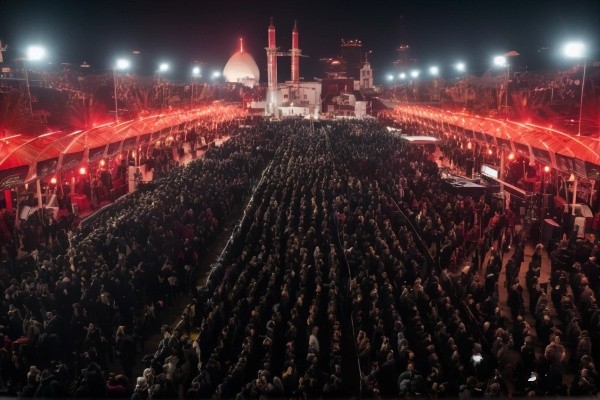Iran’s Plan to Strike Back Against the U.S.
Iran’s Military Preparations Following U.S. Attacks
Loading...

The province of Punjab in Pakistan is considering a temporary ban on major social media platforms, including YouTube, WhatsApp, Facebook, Instagram, and TikTok, for a period of six days
The proposal, put forward by the Punjab government, aims to address security concerns and maintain peace during religious processions, particularly the Muharram's Ashura processions observed by minority Shi'ite Muslims.
The recommendation to ban social media platforms from July 13 to 18 has been attributed to the need to control hate material, misinformation, and to prevent sectarian violence during this sensitive period. The proposal, although not yet finalized, has sparked discussions about the potential impact on over 120 million people in the province of Punjab. The decision to implement the suspension will ultimately rest with the federal government, led by Prime Minister Shehbaz Sharif, the uncle of Maryam Nawaz, the Chief Minister of Punjab.
Context and Concerns
The proposed ban is specifically linked to the 10th day of Muharram-ul-Haram, a significant occasion for Shi'ite Muslims, commemorating the death of religious leader Hussain Ibn Ali, the grandson of the Prophet Muhammad. The government's concern about potential unrest and security threats during this period has led to the recommendation for the temporary ban on social media platforms.
This move is not the first instance of social media being targeted by Pakistani authorities. Earlier this year, X (formerly Twitter) was blocked for over four months amid national elections, citing national security concerns. The ban on social media has been met with criticism from civil rights activists, who have raised concerns about freedom of speech, particularly in the context of allegations of election fraud against the ruling government.
Political and Social Implications
The proposed ban coincides with a significant legal ruling related to the opposition leader and former prime minister, Imran Khan. The timing of the ban, alongside the ongoing legal proceedings, has raised questions about the potential impact on public discourse and political developments in the country.
The broader context of social media usage in Pakistan, including its role in political discussions and criticisms of the government, adds complexity to the proposed ban. The use of social media as a platform for dissent and public discourse has been a notable feature of the country's political landscape, particularly following significant events such as Khan's ouster via a no-confidence motion in April 2022.
Conclusion
The proposal to ban major social media platforms in Punjab, Pakistan, reflects the government's efforts to address security concerns and maintain peace during a sensitive religious period. However, the potential implications of such a ban on freedom of speech, political discourse, and public engagement warrant careful consideration. As discussions around the proposed ban continue, it remains to be seen how this decision will unfold and its broader impact on the digital landscape and public discourse in Pakistan.
BMM - MBA
Iran’s Military Preparations Following U.S. Attacks
Troops remain in five strategic locations, raising fears of renewed tensions and long-term occupation.
Opposition forces have taken control of the capital after a significant offensive. Here is how it unravelled.
